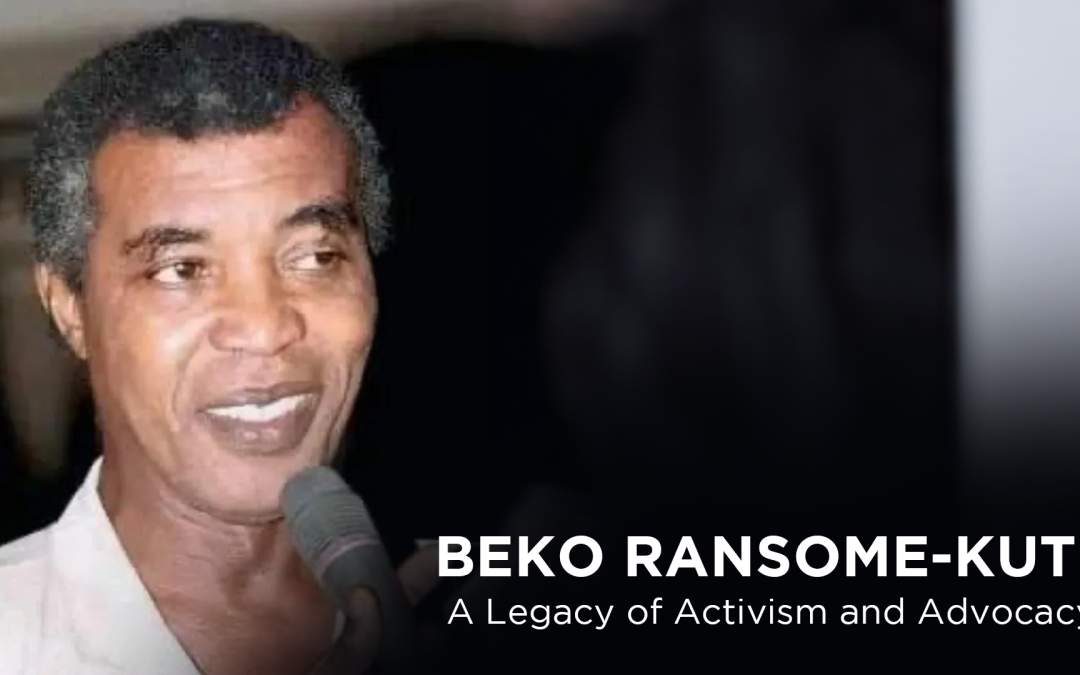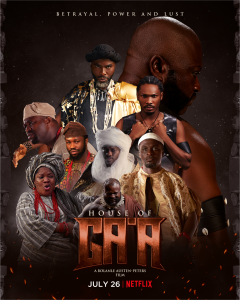Introduction
In the record of Nigerian and global activism, Dr. Bekololari Ransome-Kuti stands as a towering figure whose life’s work in human rights activism and social justice causes has left an indelible mark. A medical doctor by profession and an activist by calling, Beko’s journey was not just about healing physical ailments but also addressing the deeper societal ills that plague communities.
Early Life and Education: The Making of an Activist
Born into the prominent Ransome-Kuti family, known for its strong advocacy for human rights and democracy, Beko’s path seemed almost predestined. His mother, Funmilayo Ransome-Kuti, was a fervent activist, and his brother, Fela, a revolutionary musician. This environment nurtured Beko’s deep-seated convictions towards social justice from a young age.
Medical Career: Beyond the Hospital Walls
Graduating as a medical doctor, Beko’s career was distinguished not only by his professional excellence but also by his commitment to accessible healthcare for all. He worked tirelessly to improve healthcare standards and was pivotal in the fight against HIV/AIDS in Nigeria, advocating for better understanding and treatment of the disease.
Human Rights Activism: The Heartbeat of His Legacy
Beko’s activism was multifaceted, encompassing human rights, democracy, and good governance. As the founder of the Campaign for Democracy (CD), he was at the forefront of the struggle against military rule in Nigeria, advocating for democratic governance and the respect of human rights.
Advocacy for Democracy: A Voice Against Oppression
Throughout the turbulent years of military dictatorship in Nigeria, Beko stood as a beacon of hope. His unwavering stance against the annulment of the 1993 democratic elections epitomized his commitment to democracy and his belief in the power of the people’s voice.
Championing Social Justice Causes
Beko’s activism extended beyond political governance to include social justice causes such as poverty alleviation, education, and women’s rights. He believed in the empowerment of the marginalized and worked towards creating a more equitable society.
Confrontations with Authority: The Cost of Advocacy
Beko’s activism often put him at odds with the authorities, leading to numerous arrests and detentions. Yet, these challenges only strengthened his resolve to fight for justice, embodying the essence of courage and resilience.
Legacy in Human Rights Organizations
Beyond his direct activism, Beko’s legacy includes his instrumental role in human rights organizations. As the chairman of the Committee for the Defence of Human Rights (CDHR), he galvanized support for human rights across Nigeria, fostering a culture of awareness and advocacy.
A Mentor to Many: Inspiring Future Generations
Beko was not just a leader; he was a mentor. Through his actions and words, he inspired a new generation of activists committed to the ideals of justice, democracy, and human rights, ensuring that his legacy would live on.
The Power of Advocacy: Impacting Policy and Society
His advocacy work contributed to significant policy changes and raised awareness about crucial issues, demonstrating the power of activism to effect change in society and governance.
Remembering Beko: A Legacy Continued
Today, Beko Ransome-Kuti is remembered not only as a stalwart of human rights activism but as a symbol of the enduring spirit of advocacy. His contributions continue to inspire those who fight for justice and equality around the world.
Beko and the Arts: An Uncommon Synergy
Interestingly, Beko’s legacy is also felt in the arts, through his brother Fela’s music, which often echoed the themes of Beko’s activism, underscoring the symbiotic relationship between art and advocacy.
A Personal Life of Commitment
Even in his personal life, Beko was a testament to the principles he stood for, living modestly and dedicating his resources to the cause of activism, reflecting the depth of his commitment to social justice.
A Vision for the Future
Beko Ransome-Kuti’s vision for a just and equitable society remains a guiding light for activists today. His life reminds us of the impactful change that is possible when courage meets conviction.
Conclusion: The Eternal Flame of Activism
Beko Ransome-Kuti’s journey through life was a testament to the power of individual commitment to collective well-being. His legacy of activism and advocacy continues to ignite the flame of resistance and hope in the hearts of many across the globe. As we remember his contributions, let us also reflect on how we, too, can contribute to the causes of justice, democracy, and human rights in our communities.
FAQs
- What was Beko Ransome-Kuti’s profession? Beko Ransome-Kuti was a medical doctor, renowned for his work in public health advocacy alongside his human rights activism.
- How did Beko contribute to the fight against HIV/AIDS in Nigeria? He played a pivotal role in advocating for better understanding, prevention, and treatment of HIV/AIDS, challenging stigma and misinformation surrounding the disease.
- What was the Campaign for Democracy (CD)? The CD, founded by Beko Ransome-Kuti, was a coalition of organizations and individuals committed to advocating for democracy and human rights in Nigeria, especially against military rule.
- How did Beko’s activism impact Nigerian society? His activism led to increased awareness and advocacy for human rights, democracy, and social justice in Nigeria, inspiring many to engage in civic activism and contributing to the eventual restoration of democracy.
- What can we learn from Beko Ransome-Kuti’s life and activism? Beko’s life teaches us the importance of resilience, courage, and unwavering commitment to justice and equality, reminding us of the impact one individual can have in challenging injustice and inspiring change



